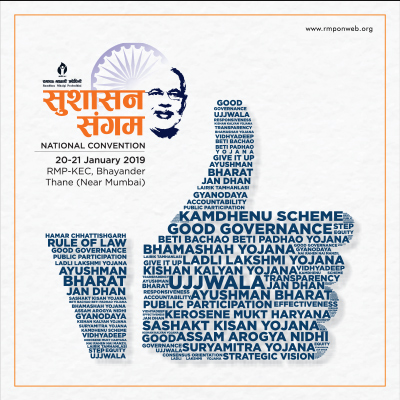Indian democracy has evolved over centuries. Globally, India has earned the recognition of being a cradle of spiritual democracy. Good Governance is a necessary requirement for a sustainable democracy to deliver development and welfare to its citizens.
Good Governance is generally defined in the form of ways and mechanisms by which different stakeholders of a democracy namely, legislature, judiciary, executive, private sector, civil society and citizens work to secure justice, empowerment, employment and efficient delivery of services in the country.
International developmental organizations like UN, World Bank, Asian Development Bank etc. have defined Good Governance in different ways but they all broadly agree on the following eight points being the key components of good governance: –
Accountability both political and bureaucratic, Participation of various stakeholders in the decision-making process, Rule of law, Transparency and freedom of information, Responsiveness, Equitable and inclusiveness, Effective and efficient administration and Robust grievance redressal mechanisms. In this backdrop of increased national consciousness about Good Governance and its rewards, Rambhau Mhalgi Prabodhini has decided to hold its annual National Convention on the topic of Sushasan Sangam. This 2-day convention is being held at RMPs Knowledge Excellence Centre in Bhayander, Thane (Near Mumbai) on 20-21 January 2019.


